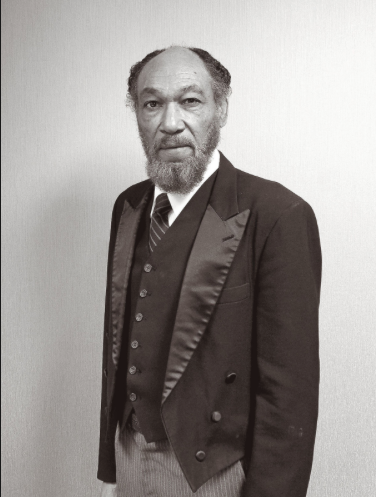*This story was featured in the June 3rd edition of the Hastings Tribune.
Democracy, segregation and the African American unsung heroes of World War I were just a few of the topics discussed Thursday afternoon during a Hastings Chautauqua presentation titled “Men of Bronze: Black Units in WWI.”
Charles Everett Pace, a Chautauqua speaker across the country for nearly 25 years, spoke at the Masonic Temple in Hastings of the importance of acknowledging and understanding the impact of African Americans during WWI. The theme for this week’s Chautauqua is “World War I: Legacies of a Forgotten War.”
“I think it’s very important. That’s what democracy is all about. If you think you have 10 percent of people in the country who didn’t participate in a defining incident of a country, like the Civil War, the question is where do they fit in the society,” Pace said. “If you don’t know that, you’re missing part of the tapestry (of America).”
In the past, Pace has portrayed Booker T. Washington, Langston Hughes and Malcolm X, but during this particular Chautauqua in Hastings, he spoke from the perspective of W.E.B. Du Bois.
Pace chronicled Du Bois’ fight for the education of African Americans, his fight for democracy and, specifically, the role that segregation played in the U.S. Army during WWI.
Democracy, as Pace described, “pre-occupied Du Bois almost all his life” and drove him to expand the conversation about democracy nationwide.
He also referenced the Harlem Hellfighters, which was the 15th New York National Guard Infantry Regiment in 1916. They were a group that is famous for being manned by black enlisted soldiers, but, unlike other infantries, they had both black and white superior officers.
This experiment of placing all black soldiers under the command of both black and white leadership answered key questions that U.S. leaders had regarding segregation within the U.S. Army.
Pace pointed to the African American impact in WWI as a direct repercussion of the German genocide that took place in Africa years before the war. He described the often forgotten genocide as “an attempt to exterminate the people of Africa and one of the earliest cases of genocide in the 20th century.”
Overall, Pace hoped to educate audience members on the impact that both black leaders and black soldiers had on the evolution of democracy and WWI.
“The theme is the role that black leaders have played to advance democracy in America. The key thing that you learn from studying history is the particular ways people have overcome obstacles and advance opportunity,” he said. “The key point is to show the unity and diversity to advance democracy in America.”

